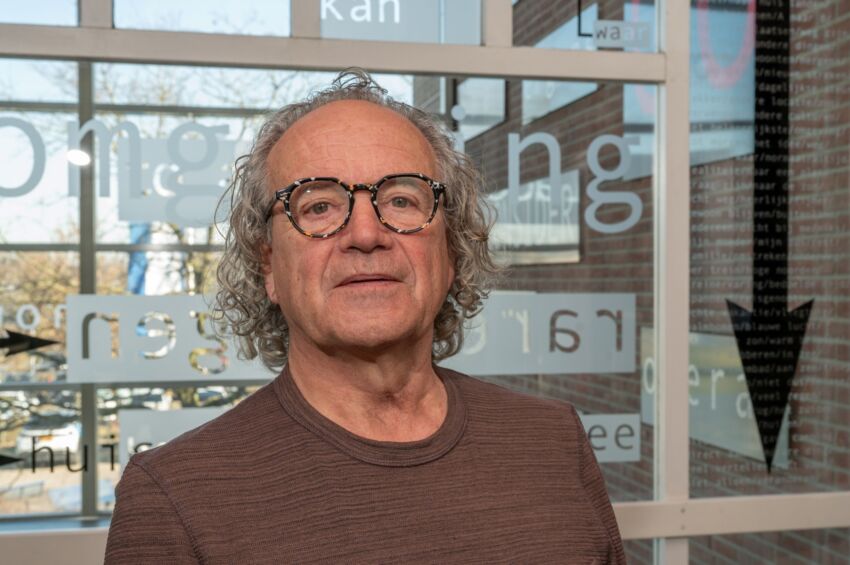Freek Gillissen will be replacing Gerda Andringa in the coming months as professor (lector) of the Elderly Care research group. The energetic resident of Goes brings decades of experience, particularly in caring for people with dementia. “In the coming period, I want to explore whether we can shift the focus from elderly care to elderly well-being.”
Gerda Andringa has stepped down from her position at HZ University of Applied Sciences because she has become the Dean of University College Roosevelt. Freek Gillissen will take over her role until September. Following an internal procedure involving a scan of potential temporary replacements, Gillissen was found to be a logical, interim successor to leading professor Olaf Timmermans.
Refugee camps in Cambodia
A review revealed that Gillissen had a wealth of experience. Gillissen started his career in 1973 as a nurse in the maternity ward, but later held various roles in multiple hospitals. In the late 1970s, he spent several months working in refugee camps in Cambodia, where he says he witnessed 'a lot of war'. After returning to the Netherlands, he began working in psychiatry and eventually became a consultative nurse at the VU Hospital in Amsterdam. “In that role, I experienced a lot. Just when you thought things couldn’t get any crazier, something would happen that surprised you again.”
In 1998, when he had grown tired of his job as a consultative nurse, neurologist Philip Scheltens approached him. The doctor had the idea of establishing an Alzheimer’s center to transform the care of people with dementia. “He said he would focus on the patients, and I would handle everything concerning their partners. As individuals, we were very different, but we understood each other perfectly. We started together in 2000. Now, 125 people work there, coming from far and wide.”
The center led to major changes in the care of especially younger people with dementia. “Before 2000, there was practically nothing. If you were diagnosed with Alzheimer’s, there was nothing you could do. We wanted to change that. We started using case managers and were the first to implement a so-called ‘care pathway.’ When you came to us, you often knew within a day where you stood. Colleagues were skeptical at first, but we did it for the older people who were often in crisis. You don’t want to wait six months for a diagnosis.”
Making knowledge accessible to a broad audience
While dementia care radically improved, Gillissen worked to spread knowledge about the disease, the care, and support for families. He organized conferences and symposia, taught at colleges and universities, and tried to reach the general public. “We made the knowledge from our academic hospital accessible to a broad audience. We looked outward because we believed that was important.”
The data that Scheltens and Gillissen collected on all their patients is now a goldmine for researchers studying the causes and potential cures for dementia. Gillissen estimates that together they saw around 15,000 people.
Born in Vlissingen, Gillissen worked at the Alzheimer Center until three years ago. Since then, he has supervised a PhD candidate researching rare forms of dementia, among other activities. He lived partly in Amsterdam and partly in Zeeland for years. Since April, however, he has been living in Goes full-time, where he ran into Timmermans. In addition to his role as a professor at HZ, he serves on the board of the Odensehuis in Zierikzee, is involved with SAV in Goes (where people with disabilities and people with dementia work), and gives lectures about dementia. “When Olaf called to ask if I wanted to become a professor, I first wanted to know what he expected of me. I’ve taught a lot at universities of applied sciences, but I didn’t know exactly what a professor (lector) does. Sometimes I still struggle to find my way around HZ, but I’m really enjoying it. Over the coming months, I want to make sure Gerda’s projects continue smoothly. I’m also looking to see if I can make some small adjustments. Perhaps we can consider shifting from elderly care to elderly well-being. That would allow us to reach a much wider audience. For example, you could research how to enable older and younger people to live together. As neighbors, they could help each other with small favors. Such little acts can mean a lot to some people.”

